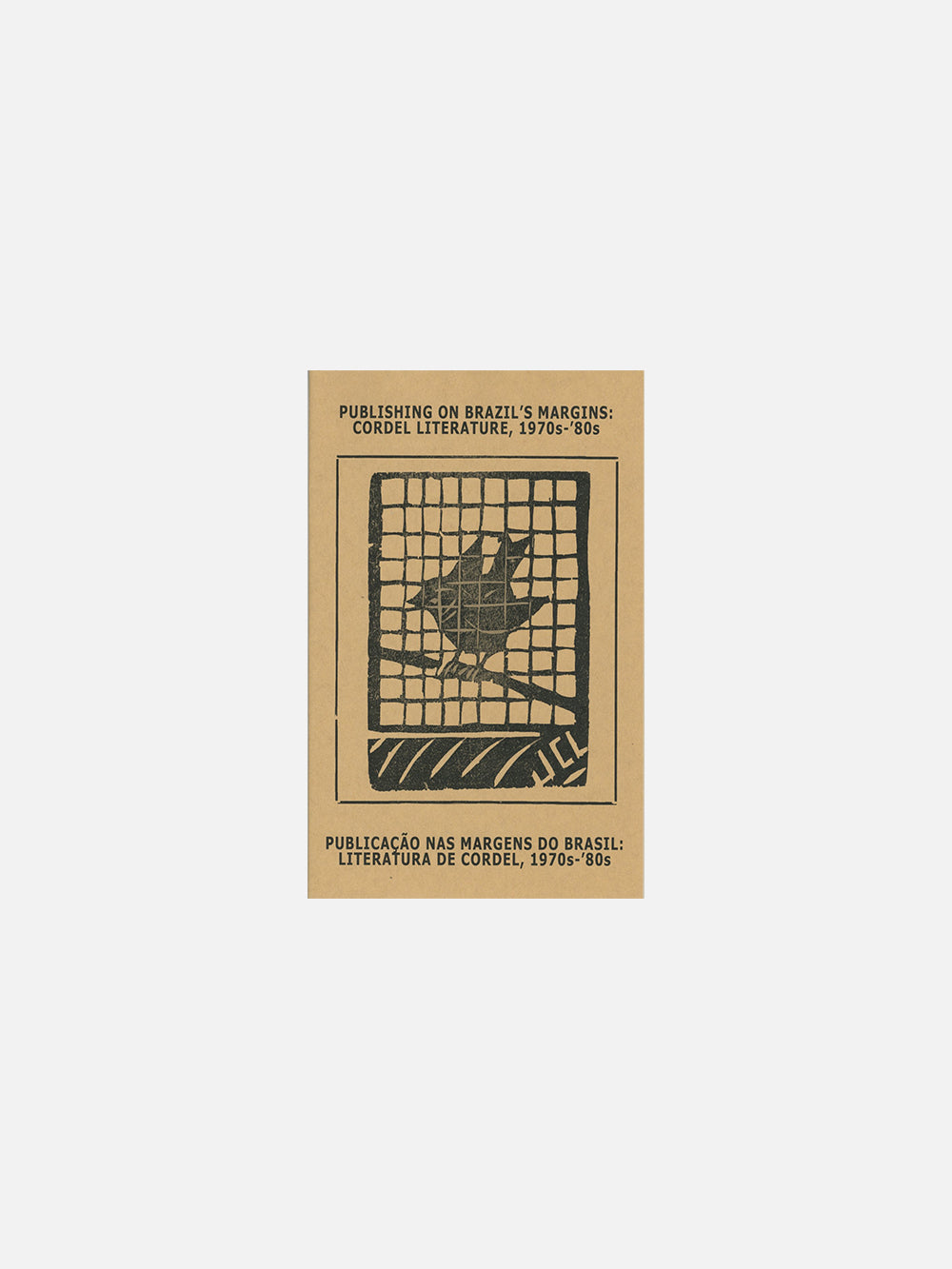Fugitive Materials

Fugitive Materials
This zine reproduces some of the covers in a substantial collection of Brazilian cordel literature from the period of the military dictatorship and shortly thereafter – self-publishing from Brazil’s margins, documenting politics, religion and folklore, and even an early treatment of AIDS in Brazil during a period of extreme censorship and repression.
Literatura de cordel (“string” or “cordel literature”) is a genre of popular literature characteristic of northeastern Brazil. The Brazilian cordel derives its name from the cord on which the booklets are customarily suspended for display in open-air fairs. Merchants frequently sing from the booklets to entice readers and clients. These chapbooks or folhetos are a remarkable example of proletarian literature in the Global South and are now being recognized as an important part of Brazilian folk and popular culture.
This collection gathers marginal printed ephemera from a period of enormous political repression: killings, and disappearances perpetrated by the state; torture; censorship; and widespread human rights abuse -- it is thus a remarkable record of popular culture during the dictatorship and in the years after.
The military dictatorship in Brazil took power in a coup d’etat in 1964, with backing from the United States government, deposing João Belchior Marques Goulart. Supported by most high-ranking military, the Catholic Church, and much of the ruling class, the new regime moved swiftly to suspend habeas corpus and to legalize extra-judicial torture and killing.
The regime reached the height of its power and popularity in the 1970s, which waned with a collapsing economy in the 1980s, until the dissolution of the dictatorship’s constitution and the formal shift to democracy in 1988. Brazil’s military government during this time is widely understood as providing a model for future military dictatorships: it’s “National Security Doctrine”, which was used to justify the military’s actions as operating in the interest of national security in a time of crisis, created an intellectual basis upon which other military regimes relied.
The titles in this collection include a guide to Esperanto; tales of crime, passion, and romance; and an early treatment of AIDS, blaming tourists, loose women, and homosexuals for its spread in Brazil. Produced throughout the 1970s and ‘80s, these are records of DIY proletarian literature from the Global South during a period of incredible censorship and oppression.